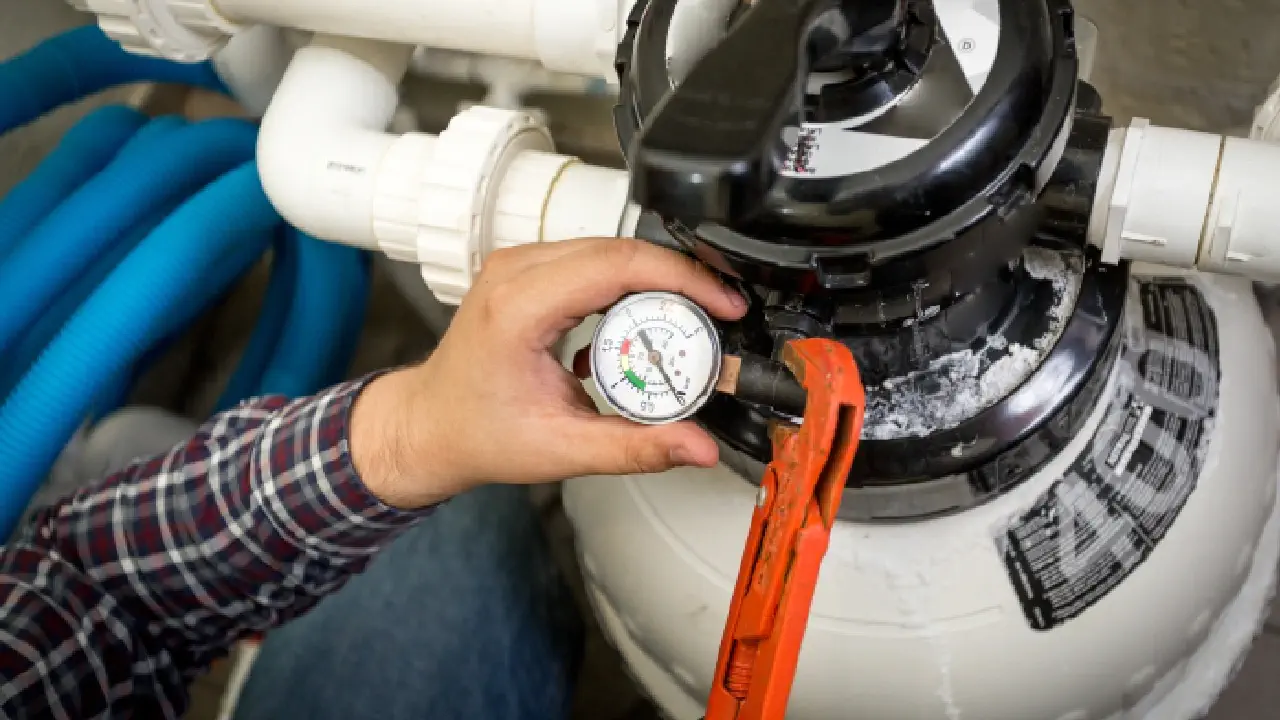
As the summer heat rolls in, there’s nothing quite like taking a refreshing dip in your backyard swimming pool. But to keep your pool water crystal clear and inviting, a properly functioning filtration system is essential. Over time, however, pool filters can wear out or encounter issues, leading to diminished performance and potential water quality problems. At Manning Pool Service in Houston, TX, we understand the importance of maintaining a healthy pool environment, which is why we’re diving into the topic of swimming pool filter repair versus replacement in this blog post.
Assessing the Situation: Is Repair Necessary?
When your pool filter starts to show signs of trouble, such as reduced water flow, increased pressure, or cloudy water, it’s crucial to assess the situation promptly. In some cases, the issue may be minor and easily fixable through repairs. Common problems that can be addressed with filter repair include:
-
Clogged or Dirty Filter Media: Over time, debris and contaminants can accumulate in the filter media, reducing filtration efficiency. Cleaning or replacing the filter media can often restore proper function.
-
Leaking Seals or O-Rings: Leaks around the filter housing or valve connections can lead to water loss and decreased performance. Replacing worn seals or O-rings can resolve this issue.
-
Broken or Damaged Components: Issues such as cracked filter housings, damaged pressure gauges, or broken valves may require replacement parts or repair by a professional technician.
Knowing When to Replace
While many filter problems can be addressed through repair, there are instances where replacement may be the more practical and cost-effective solution. Here are some factors to consider when deciding whether to repair or replace your pool filter:
-
Age and Condition: If your filter is nearing the end of its expected lifespan or showing signs of significant wear and deterioration, replacement may be the best option to ensure reliable performance and longevity.
-
Extent of Damage: Severe damage, such as cracks in the filter housing or structural issues with internal components, may necessitate replacement rather than repair.
-
Cost of Repairs: Sometimes, the cost of repairs can add up, especially if multiple components need to be replaced or if the repairs are only temporary solutions. In such cases, investing in a new filter may offer better value in the long run.
-
Upgrading Technology: If your current filter is outdated or inefficient, replacing it with a newer model featuring advanced technology and enhanced performance may be worthwhile, providing long-term benefits in terms of water quality and energy efficiency.
Trust the Experts at Manning Pool Service
Whether you’re dealing with a minor filter issue or considering a full replacement, Manning Pool Service is here to help. Our team of experienced technicians specializes in pool filter repair and replacement, providing personalized solutions to meet your needs and budget. We’ll assess the condition of your filter, recommend the most cost-effective course of action, and ensure that your pool filtration system is operating at peak performance.
Conclusion: Keep Your Pool Sparkling with Manning Pool Service
In conclusion, when it comes to swimming pool filter repair versus replacement, there’s no one-size-fits-all answer. It’s essential to evaluate the specific circumstances of your filter issues and weigh the factors discussed above to determine the best course of action. Whether you opt for repair or replacement, the goal is the same: to keep your pool water clean, clear, and inviting all season long.
Trust Manning Pool Service in Houston, TX, for expert advice and reliable service. Contact us today to schedule a consultation, and let us help you keep your pool sparkling and enjoyable for years to come.

